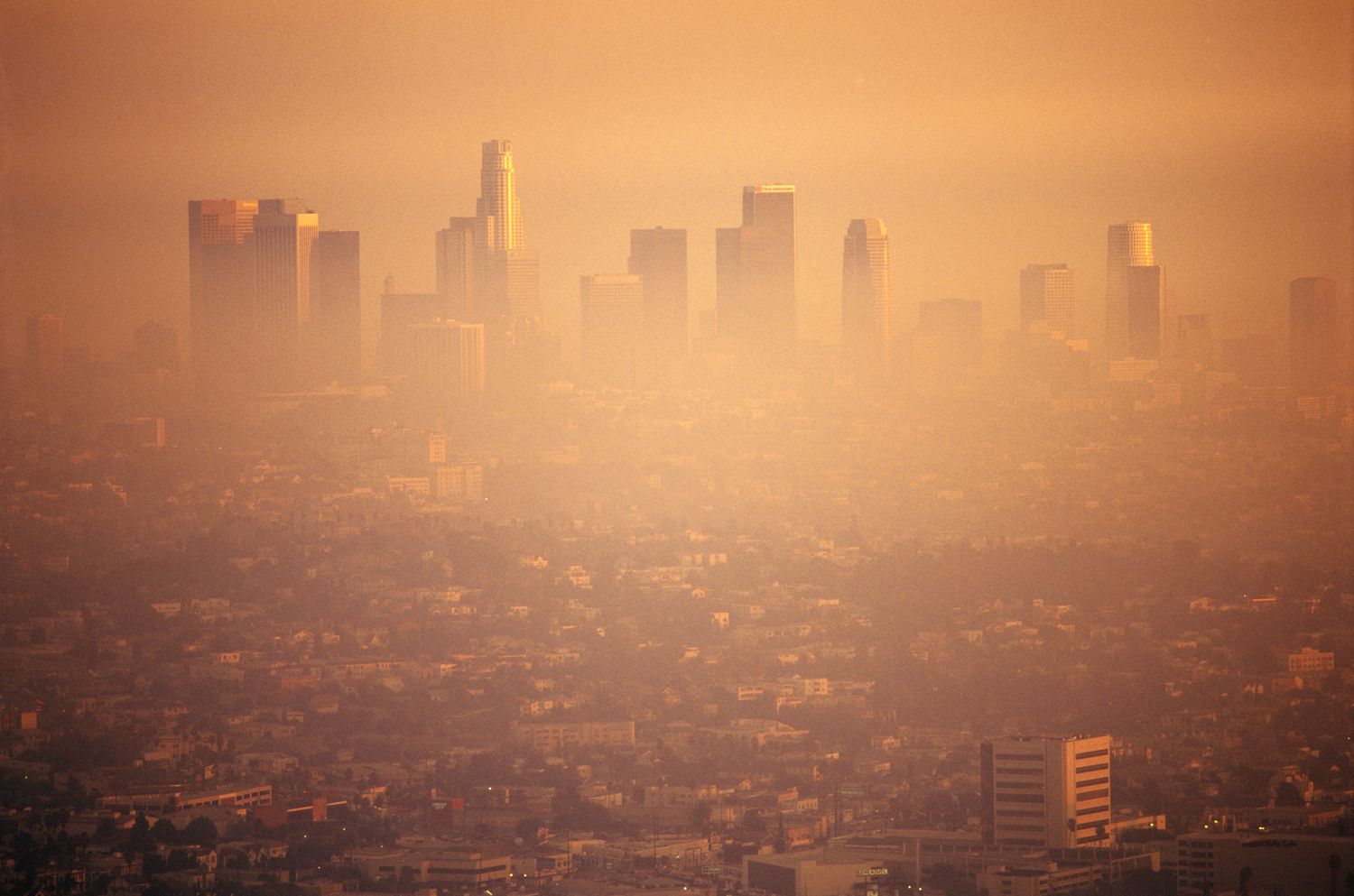Heat Waves and Poor Air Quality Increase Risk of Fatal Heart Attack

Exposure to extreme heat combined with air pollution may double the risk of having a fatal heart attack, according to a new study.
While this combination raised the risk most significantly, researchers found that the chances of a deadly heart attack also spiked solely during periods of extreme heat or cold.
Doctors said the study, published last month in the journal Circulation, highlights the importance of monitoring time outdoors during extreme weather or when air quality is poor.
“One important takeaway message for patients is that if you have a history of coronary artery disease, especially if you have had a recent or prior heart attack, it is important to take precautions on very hot or very cold days,” Grant Reed, MD, a cardiovascular medicine specialist at Cleveland Clinic, told Health. “It is likewise an important goal for all of us to avoid the effects of smog and poor air quality on our bodies and encourage public health policies that promote better air quality.”
The study comes as extreme temperature events “are becoming more frequent, longer, and more intense, and their adverse health effects have drawn growing concern,” Yuewei Liu, MD, PhD, senior study author and associate professor of epidemiology in the School of Public Health at Sun Yat-sen University in Guangzhou, China, said in a press release.
Extreme heat has already been tied to several health issues, such as heat stroke, heat exhaustion, and respiratory problems. Exposure to extreme cold can cause hypothermia, frostbite, and inflammation of blood vessels in the skin.
“Another environmental issue worldwide is the presence of fine particulate matter in the air, which may interact synergistically with extreme temperatures to adversely affect cardiovascular health,” Liu said in the press release.
Fine particles come from smoke from fires and emissions from power plants, cars, trucks, and industrial facilities. They’re more dangerous than coarse particles—from dusty roads, dry riverbeds, farms, construction sites, and mines—because they can reach the deepest parts of your lungs or even your bloodstream.
This type of pollution has already been associated with heart disease. It is also linked to chronic lung disease, preterm births, cancers, and other conditions.
For the study, researchers analyzed 202,678 heart attack deaths in China’s Jiangsu province between 2015 to 2020. They examined weather patterns and pollution levels on the days of and the days surrounding the deaths.
They found the risk of a fatal heart attack was twice as high as usual when temperatures ranged from 83 to 98 degrees Fahrenheit for four days and fine particulate pollution measured above 37.5 micrograms per cubic meter. That exceeds the World Health Organization’s air quality guidelines, which recommend that people avoid exposure to more than 15 micrograms per cubic meter more than three to four days a year.
Researchers found an 18% increase in the risk of a deadly heart attack during two-day heat waves. The chances of dying from a heart attack rose by 4% during two-day cold spells when temperatures ranged from 33 to 41 degrees Fahrenheit.
People aged 80 and older had the highest risk of dying from a heart attack during heat waves, cold snaps, or days with poor air quality, the study found. Women fared worse than men during extreme heat.
The researchers don’t know what’s behind the link between fatal heart attacks, extreme heat or cold, and polluted air, but they have some theories.
Dehydration may influence heart attack risk during periods of intense heat, the researchers wrote in the study, while elevated blood pressure and contracting blood vessels could raise the risk of a deadly heart attack on cold days.
The combination of heat and pollution may elevate heart attack risk because people may breathe faster and harder on sweltering days, causing them to inhale even more harmful microscopic particles than usual, the authors said.
The study has limitations, according to the doctors interviewed.
For one, it didn’t prove extreme weather or polluted air causes fatal heart attacks, only that there is an association between these outdoor conditions and heart attack deaths, noted Reed.
The results may also only apply to some regions and populations, Matthew Tomey, MD, a cardiologist and assistant professor of medicine at Icahn School of Medicine at Mount Sinai, told Health. “Studies to replicate this analysis in other areas, including in the United States, would be helpful to appraise the generalizability of the findings,” said Tomey.
Reed echoed that sentiment. “The culture and adaptation behaviors of the Chinese population may be different than other countries, so it would be helpful to repeat the study in the U.S. population as we may see less or even more impressive findings,” he said.
Reed said that people with heart conditions aren’t the only ones who should monitor their time outdoors during risky conditions. These conditions can harm healthy people, especially if they’re doing strenuous activities outside.
“Extreme heat or cold can put stress on our bodies. It is important to avoid pushing yourself to your full exercise capacity without speaking to your physician first,” said Reed. “Certain activities to avoid may be shoveling snow during the winter or pushing a lawn mower…on very hot days.”
If possible, you should stay inside and use an air conditioning unit during heat waves, he added.
In the press release, Liu suggested other ways to stay safe during periods of extreme weather or poor air quality:
Reed noted that it’s important to take precautions when possible, given the known health effects of extreme weather and poor air quality. “This is an important observation, as it suggests fluctuations in climate and air pollution may be contributing to an increase in…deaths,” he said. “This was a well conducted study, with important public health implications.”




